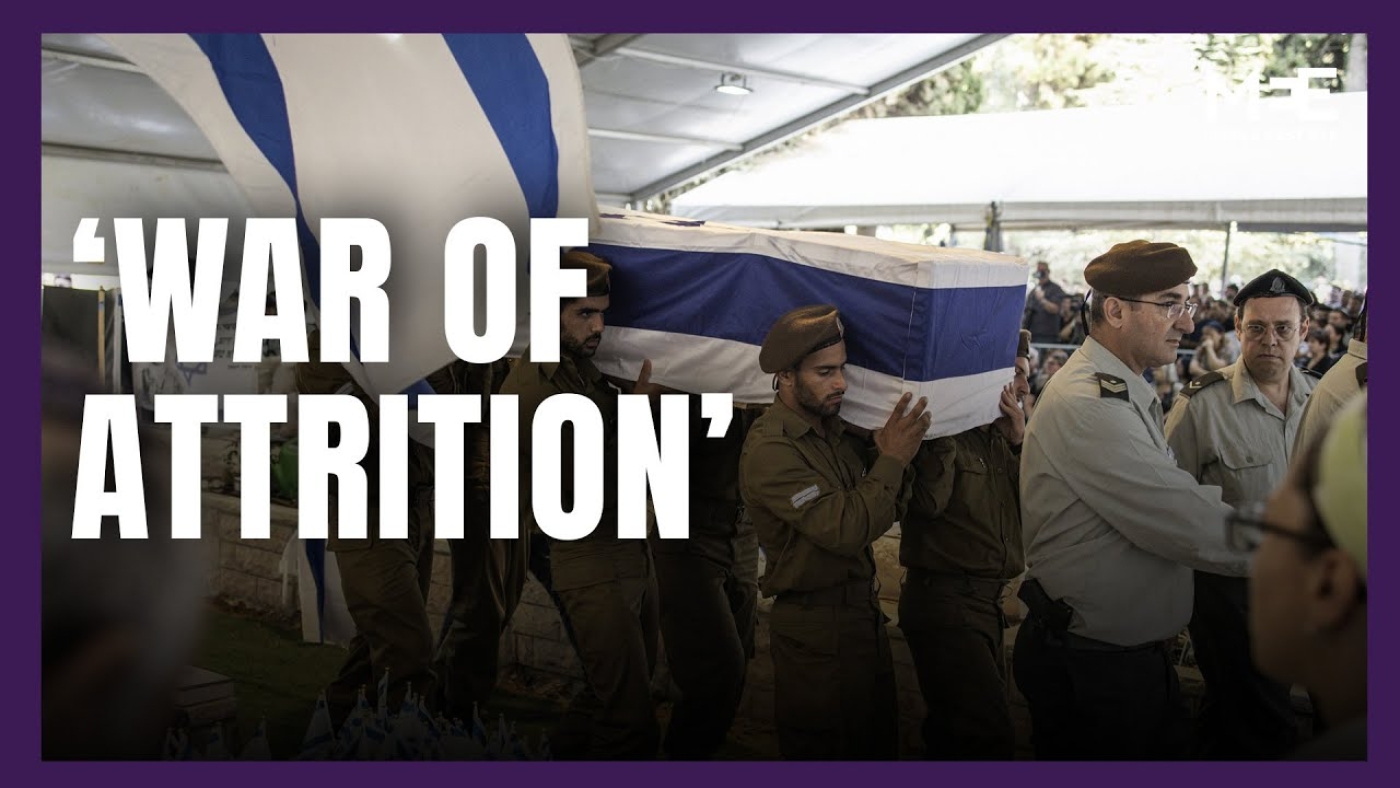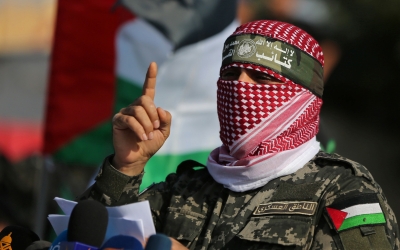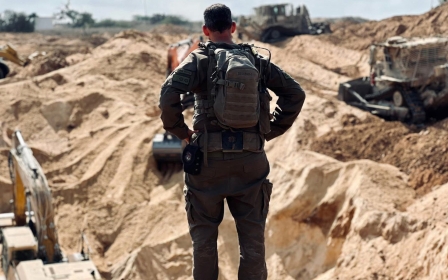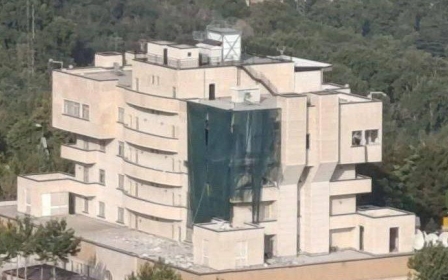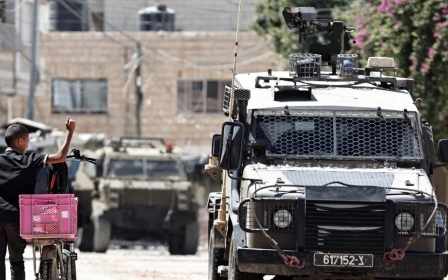Hamas's military spokesperson says Israel could have reclaimed captives a year ago
In a 25-minute video commemorating the one-year anniversary of the 7 October Hamas-led attacks on Israel, in what the group and other Palestinian fighting factions have dubbed "Operation Al-Aqsa Flood", al-Qassam Brigades spokesperson Abu Obeida said he could not rule out more deaths among the remaining Israeli captives due to “the danger of crossfire”.
He insinuated that their guards could put them at risk, depending on the circumstances in the field, and blamed the Israeli government for their “fate”.
“We cannot rule out their file ending up in a dark tunnel,” Abu Obeida said.
Israel believes there are just under a hundred captives still being held in Gaza, out of a total of 251 who were captured by Hamas in October 2023. Most of those released were freed in a prisoner exchange back in November, while a handful were retrieved by the Israeli military during deadly covert operations inside Gaza earlier this year.
In December, Israeli forces killed three Israeli captives, in what was billed as a “friendly fire” incident. In August, they recovered six bodies. Israel said they were shot at close range by Palestinian fighters but Hamas denied the claim.
New MEE newsletter: Jerusalem Dispatch
Sign up to get the latest insights and analysis on Israel-Palestine, alongside Turkey Unpacked and other MEE newsletters
“What happened with the six in Rafah may happen again, if Netanyahu and his bloodthirsty government persist,” Abu Obeida said, without elaborating on how they died.
“You could have reclaimed all your captives a year ago,” he added, saying that the intention has always been to keep them alive in Gaza and exchange them for Palestinian detainees in Israeli prisons.
War of attrition
This is a fight meant to drain Israel of its resources, Abu Obeida said.
“[We face] an entity whose age is less than that of the shoes in mosques and churches in Gaza, Jerusalem, Bethlehem, and Hebron, and Jaffa, and Nablus, and Sidon and Tyre and Beirut,” he said.
'If the [Israeli] assassinations were a victory, the resistance against the occupation would have ended'
- Abu Obeida, Hamas military spokesman
In its relatively short life as a nation, he added that Israel has not lived a year without constantly being reminded it has “stolen Arab land” and that it occupies “our country”.
Abu Obeida conceded that the war was an “unequal battle” with heavy sacrifices by Palestinian fighters and civilians alike.
He vowed that the fighting factions - at least five other known groups in addition to al-Qassam Brigades - would remain “steadfast”.
“Thousands of enemy soldiers [have been] killed or wounded,” Abu Obeida said, referring to sniper operations and ambushes in Gaza.
Israel has only confirmed a few hundred troop losses.
This war of attrition, he said, will be “long and extended and painful and expensive”.
‘Policy of assassinations’
This is Abu Obeida’s first on-camera appearance since the assassination of the leader of Hamas’s political bureau, Ismail Haniyeh, while he was visiting Iran in July.
Israel has not officially claimed responsibility for his death. In January, Israel also assassinated senior Hamas leader Saleh al-Arouri in Lebanon.
Eliminating senior leaders alone is not a winning tactic, Abu Obeida said.
“If the assassinations were a victory, the resistance against the occupation would have ended,” Abu Obeida said, “and the al-Qassam Brigades would not have mounted Operation Al-Aqsa Flood twenty years after the assassination of the most prominent founders of Hamas.”
In 2004, Israel assassinated the founder of Hamas, Sheikh Ahmed Yassin, inside Gaza. The man who succeeded him, Abdel Aziz al-Rantisi, was also assassinated a month later.
“Israel’s joy at assassinations is a deceptive intoxicant,” he added.
Fighting in occupied West Bank
It’s not just Gaza that has been bombarded from the air.
Last week, Israeli forces carried out air strikes in the Tulkarm refugee camp in the West Bank, killing twenty people, among them an entire family.
That follows a number of deadly Israeli raids on the camp, as well as into the Jenin refugee camp, long considered a hotbed of Palestinian armed resistance against the Israeli occupation.
Combined with regular home demolitions and the expansion of Israeli settlements considered illegal under international law, Hamas has regularly cited these actions as justification for launching its rockets against Israel.
“What did the world do for our people in the West Bank?” Abu Obeida said. “Those who are subject to displacement and slow, systematic extermination?”
“This occupation [force], and especially its current terrorist government, doesn’t want to see a Palestinian west of the Jordan River.”
The Israeli prime minister has had a habit of giving a speech at the yearly United Nations General Assembly while holding up a map which erases all of historic Palestine, replacing it with Israel, which he repeated during this year's General Assembly.
“This enemy only understands the language of power,” Abu Obeida said. “And the weapon is only confronted with the weapon.”
Middle East Eye delivers independent and unrivalled coverage and analysis of the Middle East, North Africa and beyond. To learn more about republishing this content and the associated fees, please fill out this form. More about MEE can be found here.


